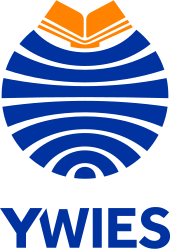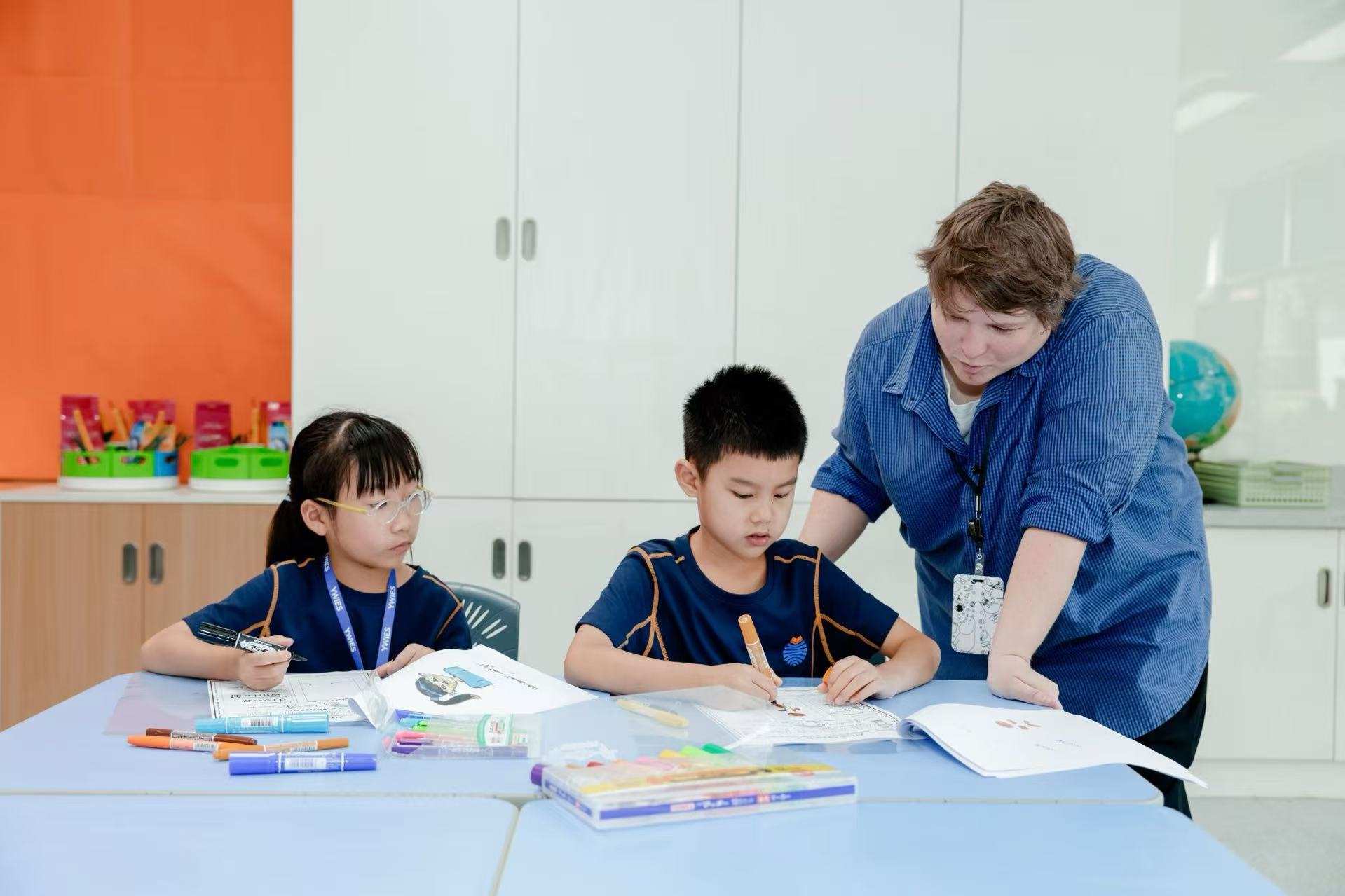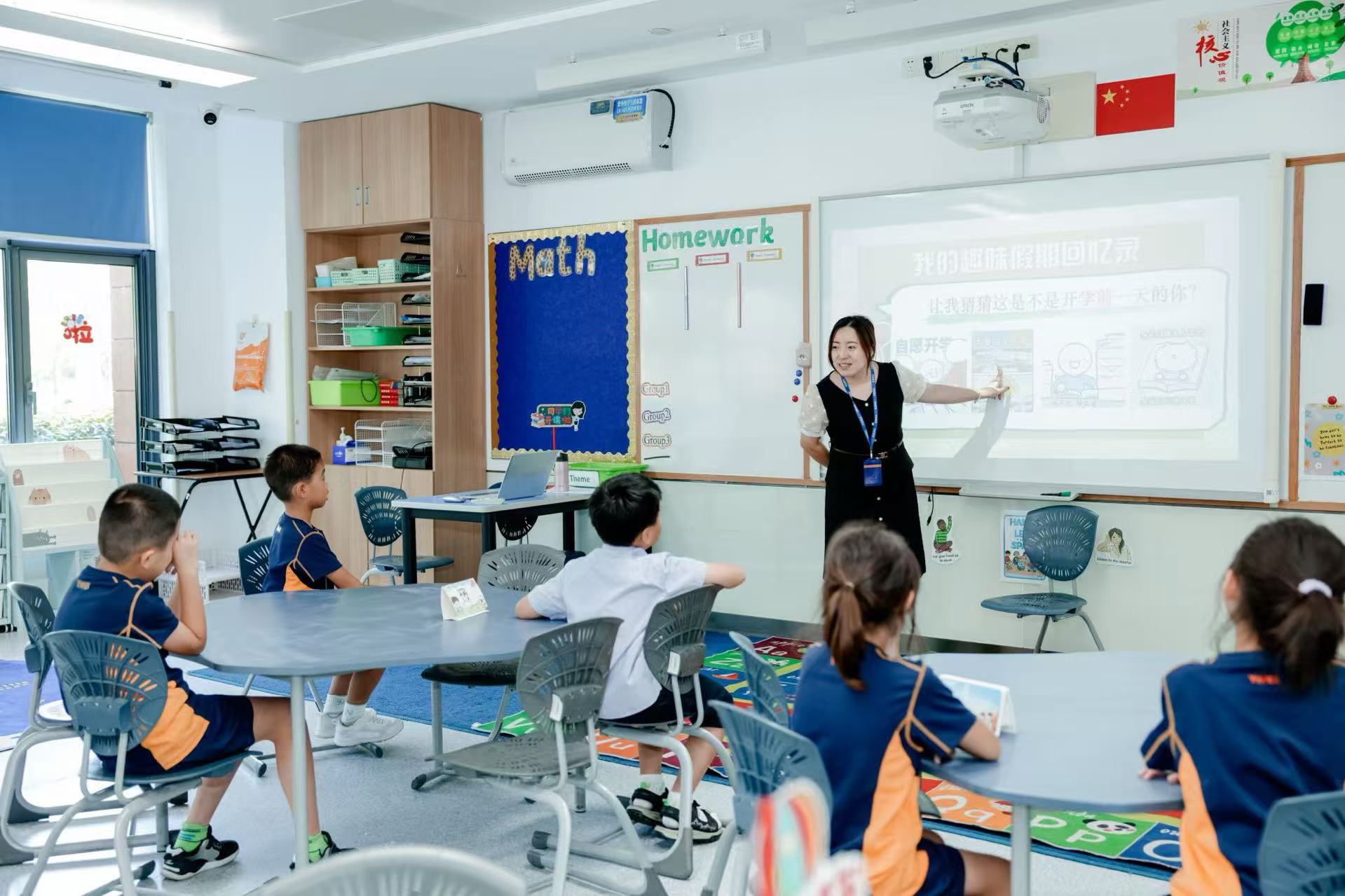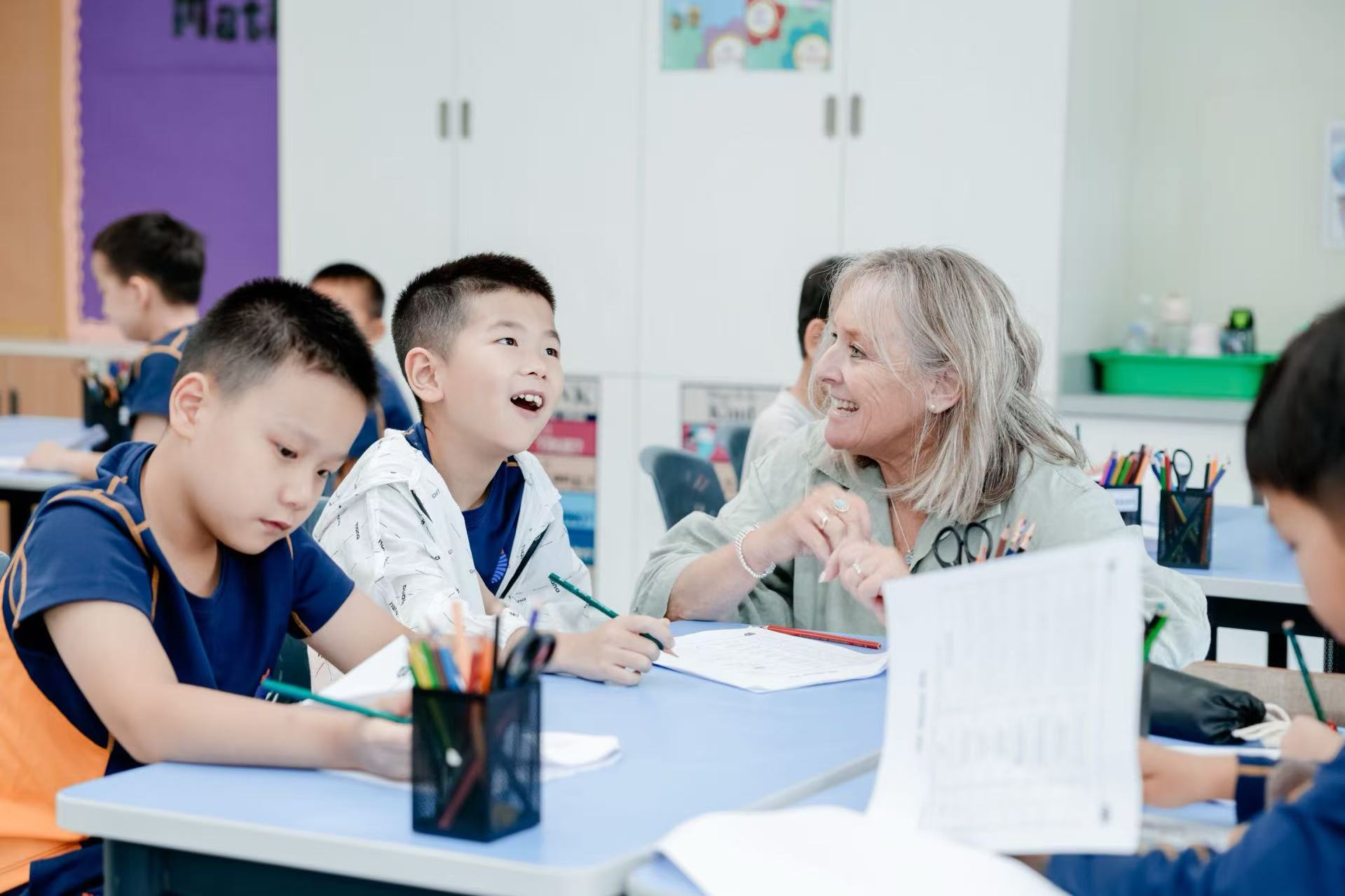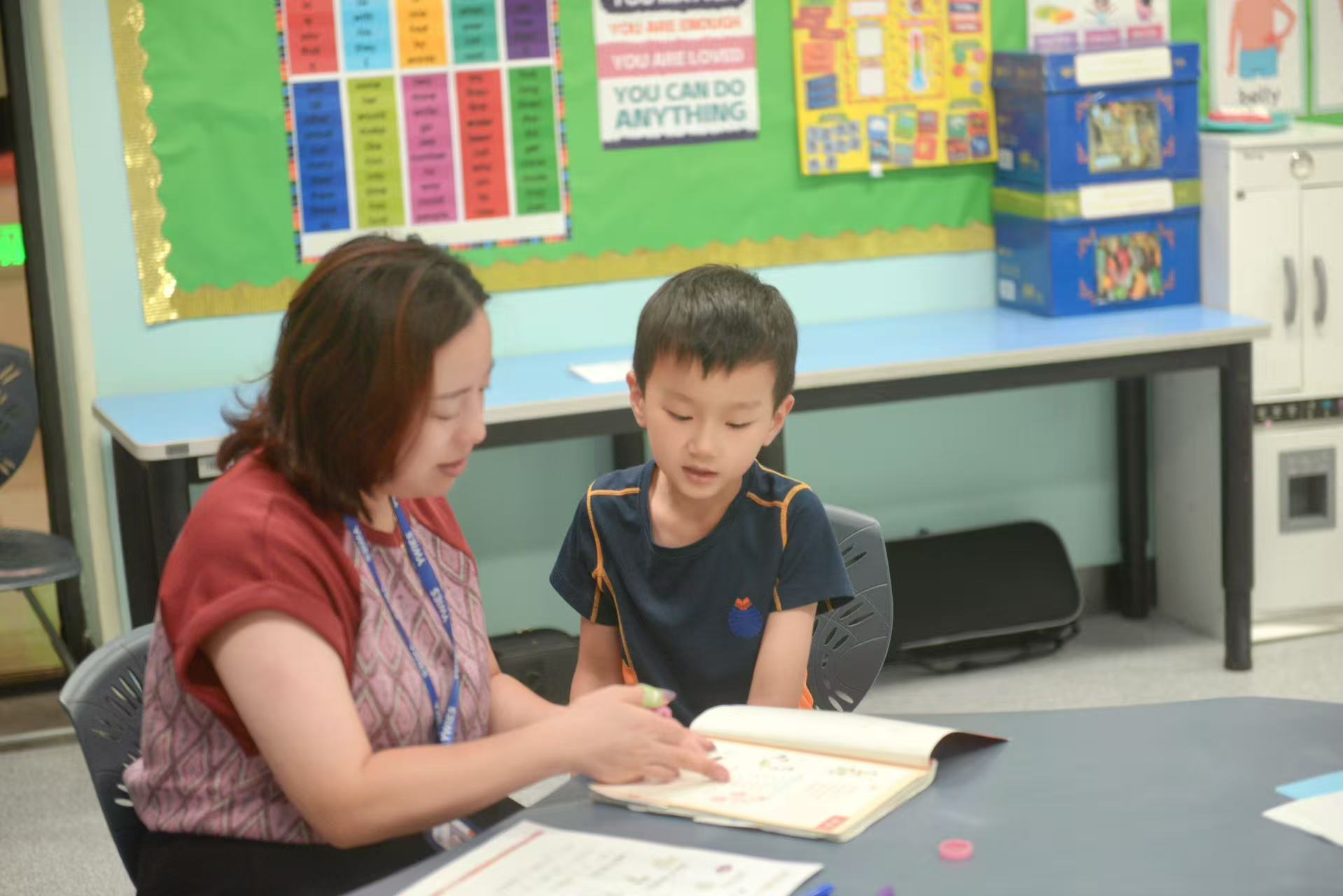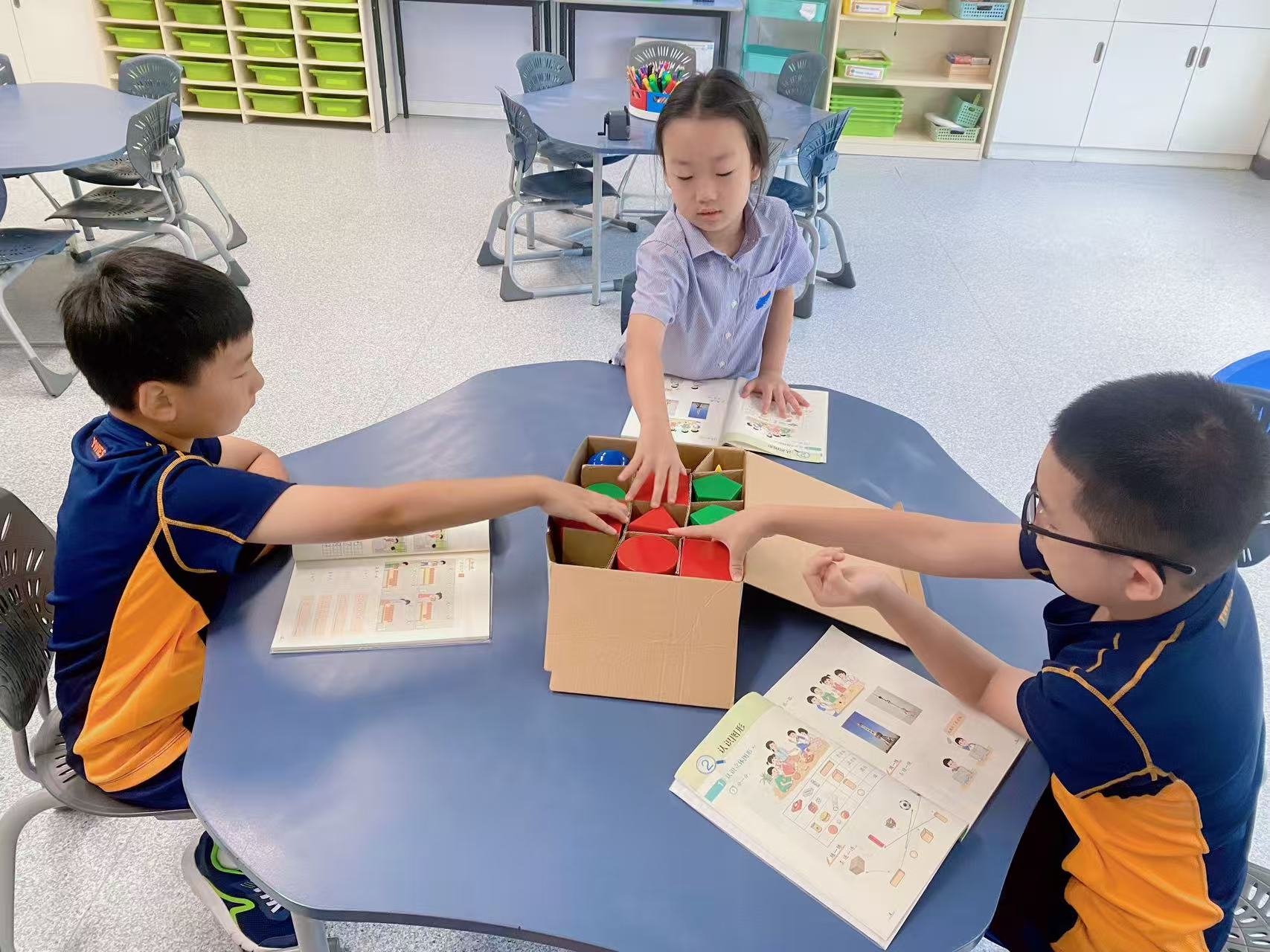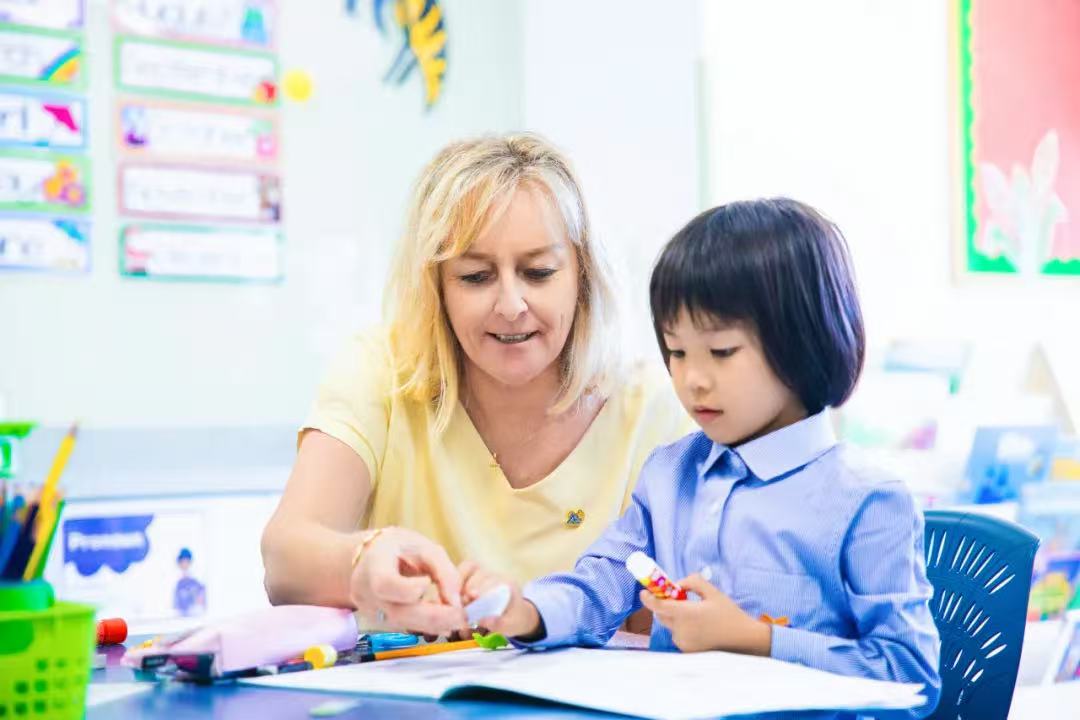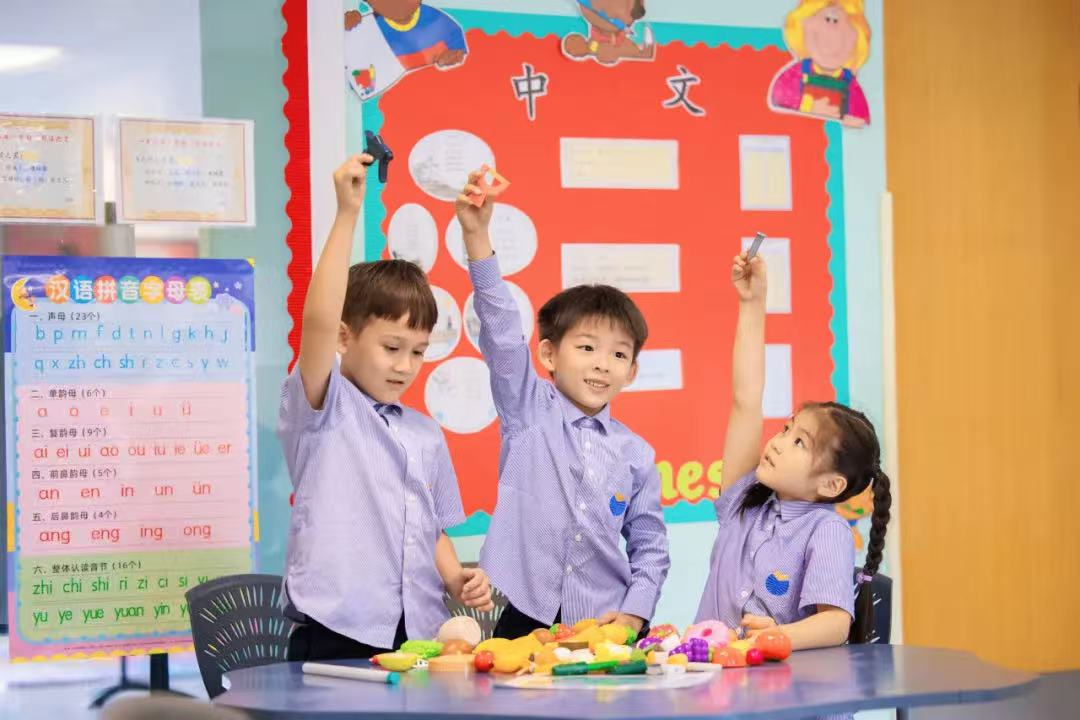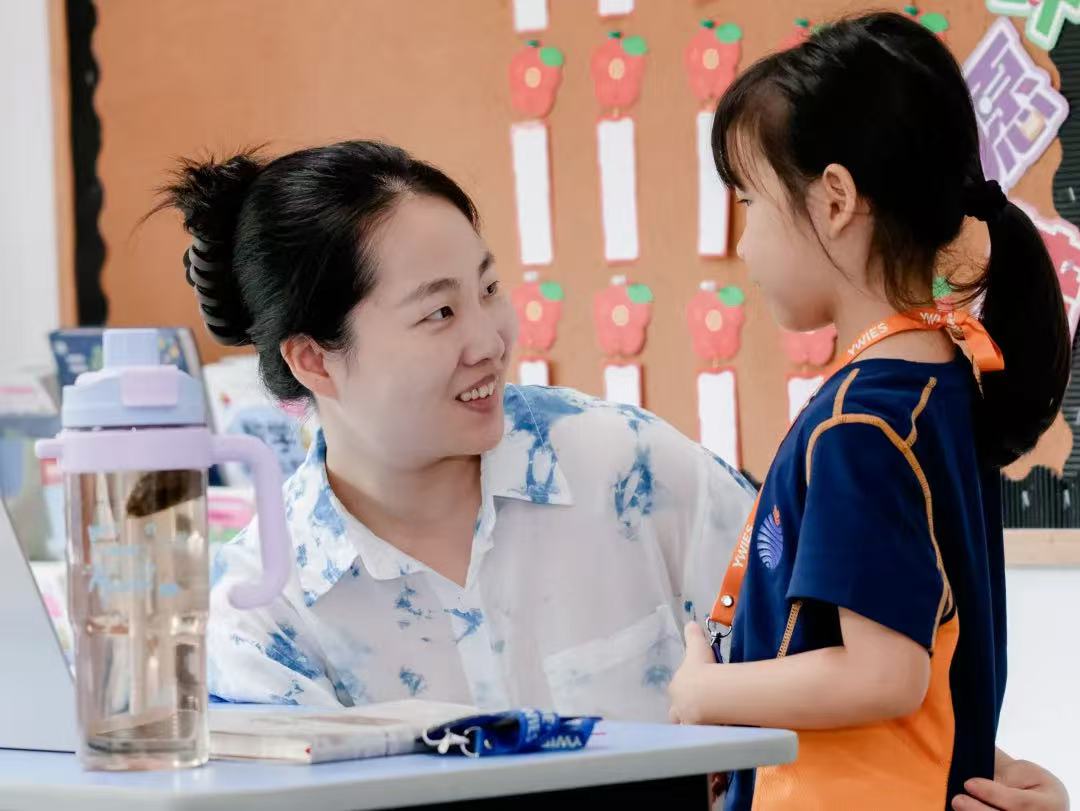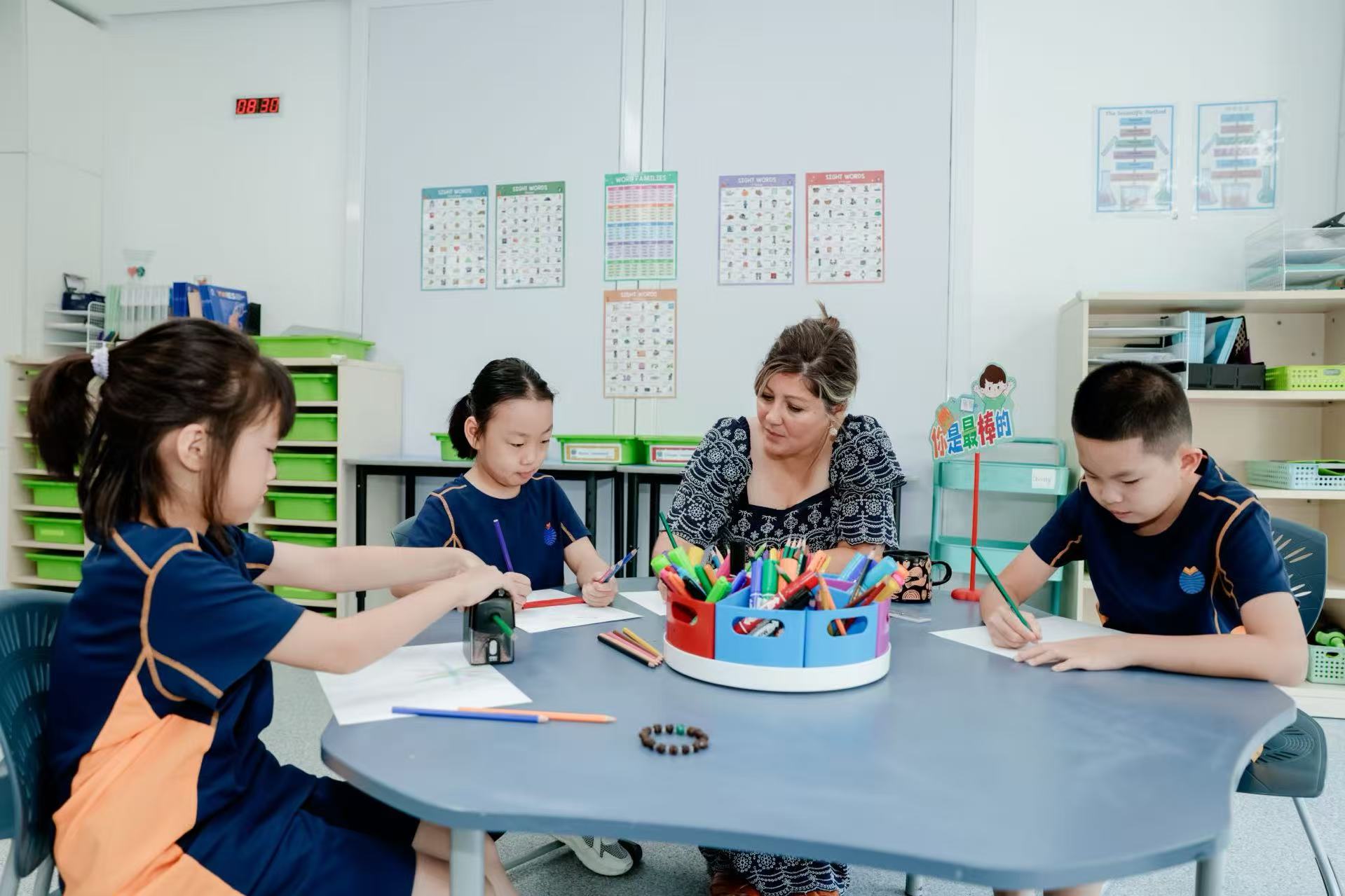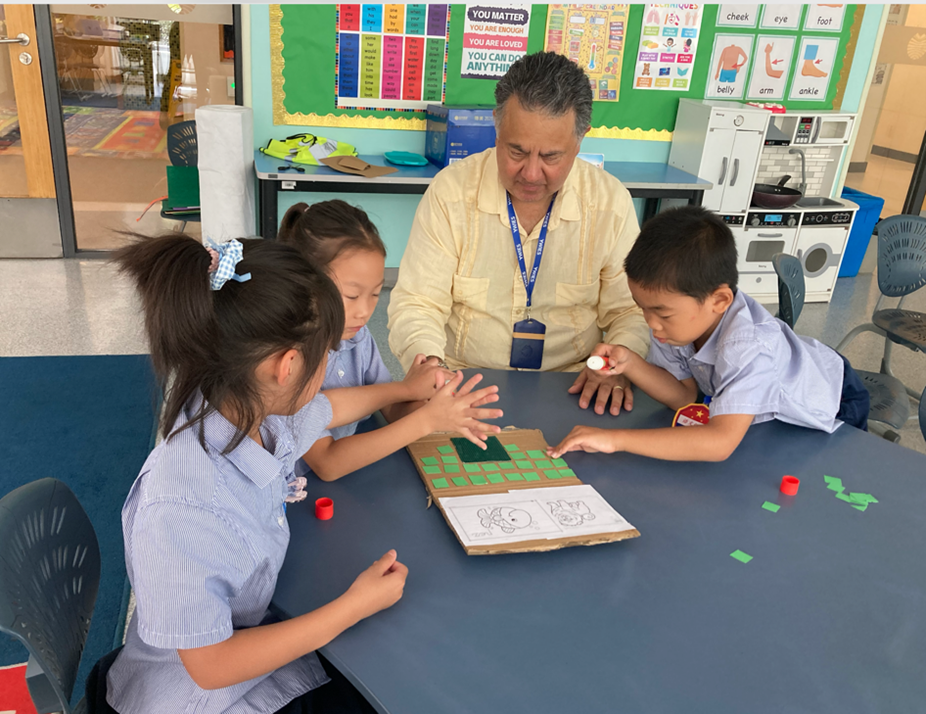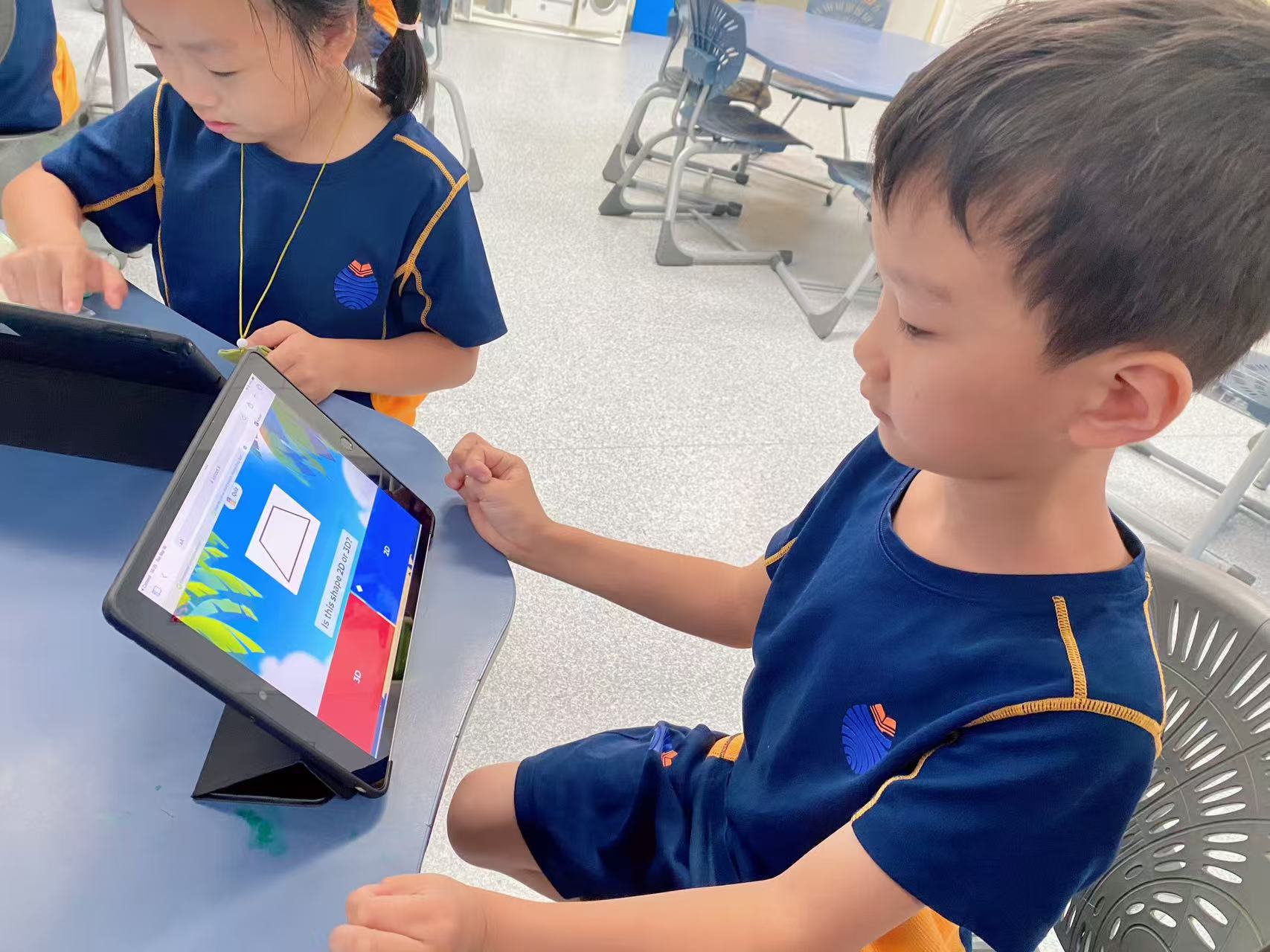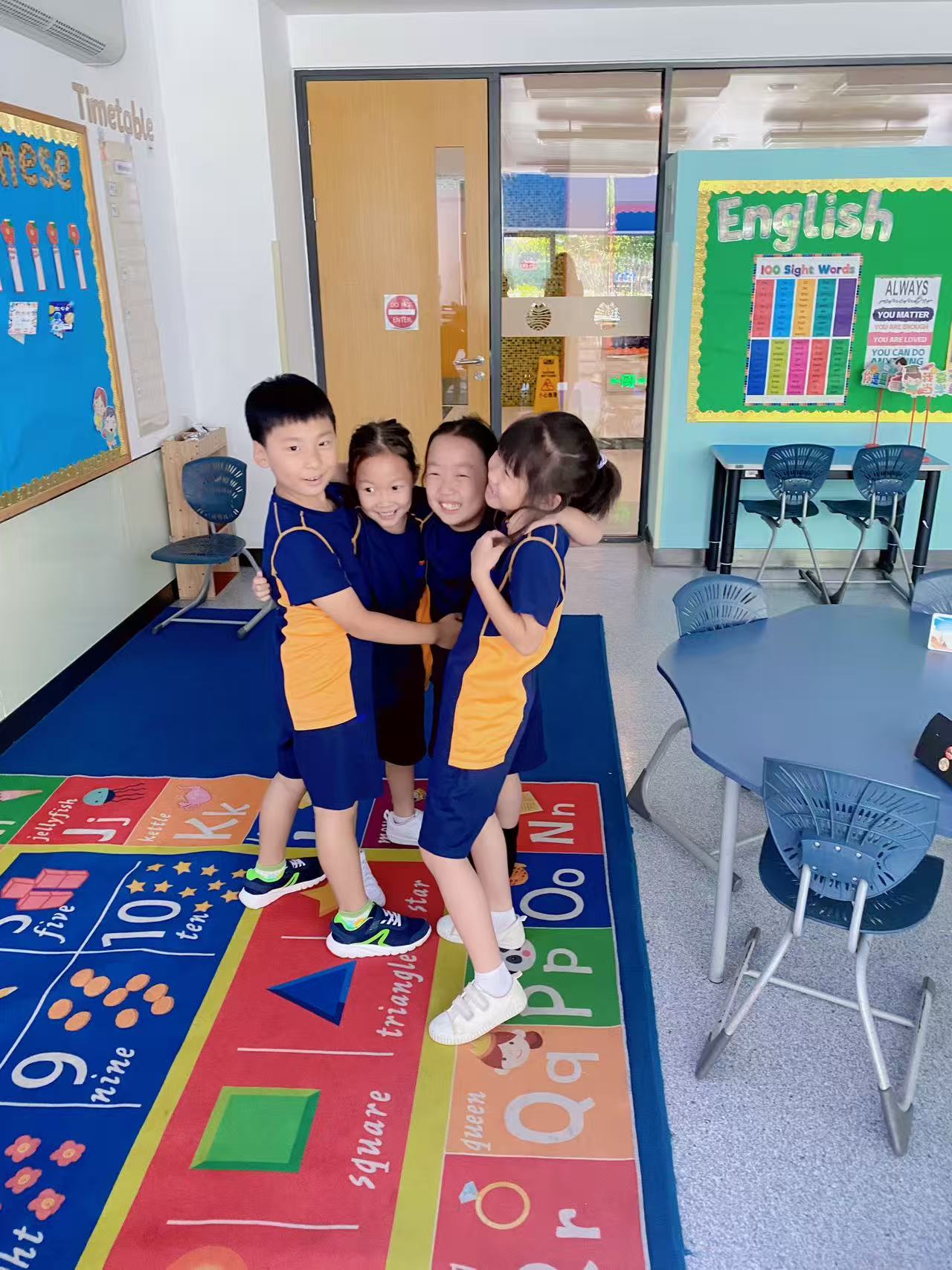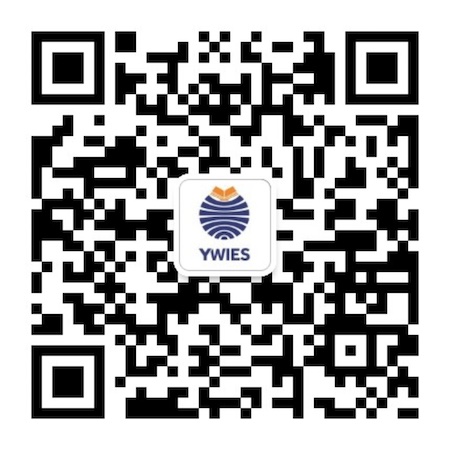Go Back
News
School News
YWIES Lingang’s Secret to Helping Kids Adapt to Primary
School News
22 Sep, 2025
13 : 26
Farewell to the building blocks and nursery rhymes of kindergarten, and step into the classrooms and campus of primary school—the “growth hurdle” of transitioning from kindergarten to primary school often makes children nervous and parents anxious. In fact, with the right methods, this transition can be easy and smooth. YWIES Lingang Primary School has established a Kindergarten-to-Primary Transition Support Program, focusing on three core areas: behavioral habits, self-management, and home-school collaboration. It uses methods that children can understand and enjoy to help them gradually adapt to the new rhythm and life of primary school.
Behavioral Habits
01 School Orientation Week
For children who have just entered the campus, the most intimidating thing is “rules they can’t understand.” YWIES Lingang hides rules in things children like:
- Create a Grade 1 Behavioral Guide Map with a cartoon “Rule Panda” as the main character. Pointing to the map, children are told, “Sit up straight in class like the little panda” and “Put schoolbags in the designated lockers.” The combination of pictures and text makes the information easy to understand at a glance.
-
Organize a “Campus Treasure Hunt” game: On the way to finding treasures, teachers casually say, “Speak softly in the classroom, or you’ll wake the treasures,” “Walk on the right side of the corridor to avoid bumping into other little explorers,” and “Don’t chase around on the playground, or you might trip and miss the treasures.” While having fun, children naturally remember the campus rules.
02 Learning Rules in Class
Rules don’t need to be taught in a rigid way; integrating them into classes is more natural. For example, in Chinese class, teachers lead children to sing a nursery rhyme: “When the bell rings, enter the classroom, and place books and stationery on the desk; little eyes, look at the teacher, little ears, listen carefully.” When singing “place on the desk,” everyone tidies up their stationery together; when singing “listen carefully,” everyone sits up properly. By the end of the nursery rhyme, the rules are learned.
03 Progressive Improvement in Stages
Children need time to adapt, and YWIES Lingang does not adopt a one-size-fits-all approach:
- In the first two weeks, teachers gently remind students, “Look how straight Xiao Ming sits, as steady as a small pine tree!” They also help children become familiar with the schedule: “There are two classes in the morning, followed by a 20-minute break when you can drink water and play games.”
- By weeks 3–4, “Rule Badges” are used to encourage children: arriving at school on time earns a “Punctuality Star,” and listening carefully in class earns a “Listening Star.” As children accumulate more badges, they gradually realize, “I can do well even without the teacher telling me!”
-
Self-Management
01 Schoolbag Organization
Do newly arrived primary students often end up with messy schoolbags? YWIES has a clever solution:
-
In the first week of school, teachers personally teach the “layered storage method”: textbooks at the bottom, workbooks on top, stationery boxes in the middle, and water cups in the side pockets. They also create a nursery rhyme: “Big books below, small books above; pencils and erasers in the middle; water cups on the side to prevent leaks.” Children remember it well by following along and reciting.
-
Each day before school, five minutes are set aside for children to organize their own schoolbags, and deskmates check each other: “Did you put your textbooks in the right place?” “Did you screw the water cup lid tight?” Children who organize well can receive an “Organization Expert” sticker, filling them with a sense of accomplishment.
02 Class “Little Stewards”
-
Act as a “Lead Reader” in Chinese class, guiding everyone to read the Three-Character Classic and Standards for Being a Good Student and Child, which require preparation in advance.
-
Serve as a “Timer” in math class, using a small alarm clock to remind group discussions: “There are two minutes left; let’s summarize quickly.”
-
Be a “Word Teacher” in English class, helping everyone recognize words like “pen” and “red” before class, and assisting the teacher in distributing letter cards during class.
-
Take on the role of “Material Manager” in art class, distributing paintbrushes and collecting colored paper. These small tasks help children gradually learn to plan proactively and take responsibility for things.
-
Home-School Collaboration
01 Home-School Consensus Meeting
At the beginning of the school year, YWIES meets with parents to discuss: for example, “What should we do if children forget to bring textbooks?” and “How can we teach children to organize at home?” The meeting also clarifies primary school requirements—such as “It is recommended that children go to bed at 8:30 p.m. and wake up at 7:30 a.m.” and “Let children organize their own desks every day.” This helps parents understand how the school teaches and how the family should cooperate, avoiding inconsistency between home and school.
02 Frequent Daily Communication
Core teachers regularly share children’s daily lives in the class group: “Xiao Yu was the English lead reader today, and his pronunciation was very accurate!” “Duo Duo organized her schoolbag quickly and neatly, with photos attached for reference.” When problems arise, they also communicate promptly. For example, if a child has poor concentration, they work together to find a solution: “Set up a 20-minute ‘focused reading corner’ at home and don’t disturb the child.” Positive communication ensures parents always know how their children are doing at school and how they can help.
03 Small Family Tasks
YWIES Lingang also guides parents to carry out “family extensions”: let children help set the table and fold clothes, and record videos to share in the class group; launch a “parent-child reading check-in” activity, where parents read with their children for 10 minutes every day and track progress. Habits learned at school are continued at home, and classmates can encourage each other, forming a positive atmosphere of “school teaches, family practices, and everyone strives to improve together.”
YWIES Lingang’s Kindergarten-to-Primary Transition Support Program never uses rules to force children to learn; instead, it uses methods that children enjoy to guide them to grow step by step. Whether it’s the engaging campus rules, small class tasks, or parent-child interactions at home, everything centers on helping children adapt comfortably and proactively. From rule guidance and responsibility assignment on campus to habit extension at home, every step is closely connected. This not only helps children quickly integrate into the primary school community but also lays a solid foundation for their future independent learning and growth.
